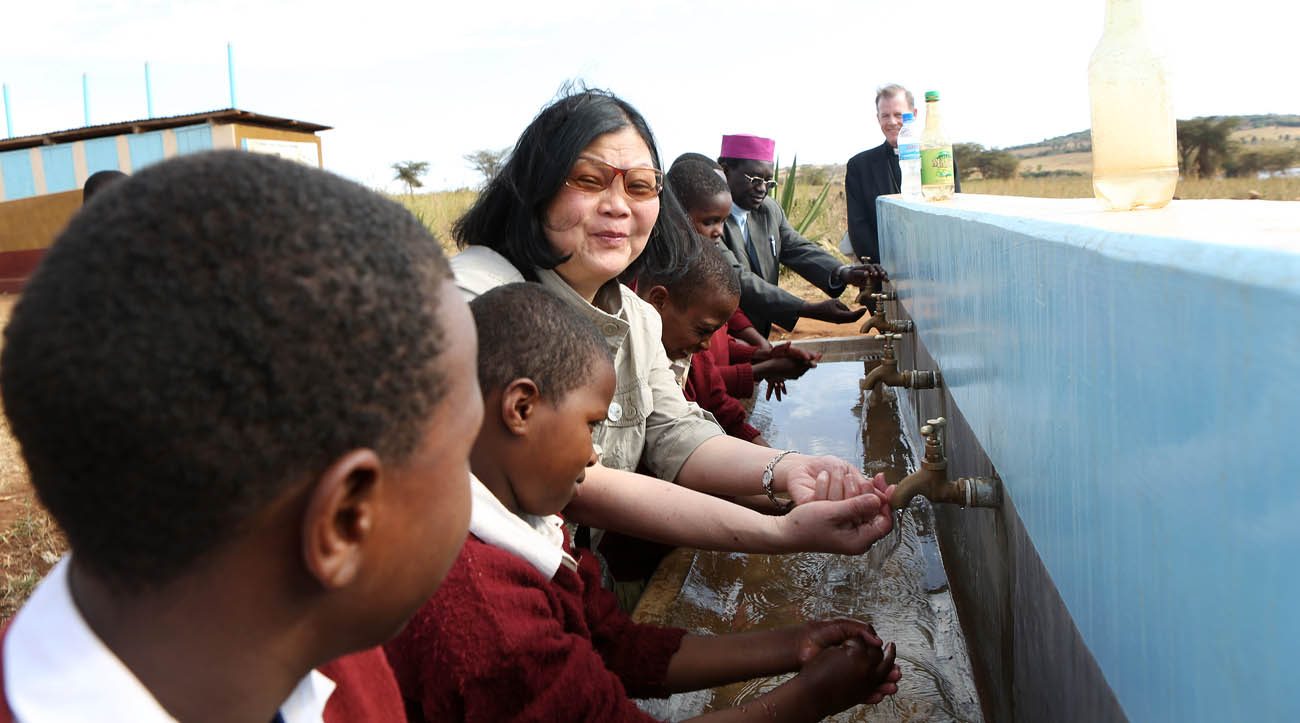BALTIMORE (CNS) – For a woman who says she likes to plan, considers herself “very analytical” and strategic, and chases stability, Carolyn Y. Woo seems to have taken a lot of unforeseen paths and professional risks in life.
Making decisions, for oneself and others, is part of business and she was barely an adult when started having to weigh some hefty choices.
(See a related video.)
At 18, she flew halfway across the world from her native Hong Kong to Indiana, a place where she knew no one and had nothing but a one-year scholarship. She turned that into a journey that has lasted more than 40 years.
Professionally, it yielded a doctorate that she squeezed out at Purdue University — from freshman to Ph.D., in seven years. That led to a professorship at Purdue, then a dean’s spot in 1997 at the University of Notre Dame’s Mendoza Business School, one of the country’s top business schools, and then she took over the CEO spot at Catholic Relief Services in 2011.
Business, particularly strategy and strategic planning, is her world. Her interests may stem, she said, from having to weigh risks early on.
“Even when I was a kid, I was very worried about (supporting family) and my drive came from, I wanted to have the skills to take care of my family. That was what drove me,” she said. “It wasn’t some grand vision of serving the world. I wanted to take care of the elderly in my family. And even very young, I would think through things: what are the pros, the cons, can I handle the risks? Is it worth the risk? I’m a very analytical person.”
[hotblock]
At the U.S. bishops’ international relief and development agency, she has found a way to unite the seemingly disparate worlds of business and nonprofits.
As she reflects on her five-year stint, which wraps up at CRS at the end of 2016, she said nonprofits and business have a lot to learn from one another.
“Business has developed a lot of tools that allow us to look at the way we work with greater efficiency and less waste,” she said. “So much of the way that we do work is tied to processes that sometimes were developed 15 years ago, 20 years ago … by now, it may not be the most logical way to do work.”
Business asks for accountability. Nonprofits sometimes can tend to go along with the flow without always reflecting, she said, or asking “is this is the best that we can do?”
Sometimes people say, “this is the way we’ve done it for a long time, if there are no better results, leave it to the Lord. … We leave it to the Lord a little bit too (easily), but we really need to use our ingenuity and our creativity to step up,” she said.
Being accountable business-wise is important because ultimately those who benefit from nonprofits are the people who need help the most, she said.
“This work is a privilege and we have to be worthy of that privilege,” she said. “We have to know when we are giving in to our own fears and our own comforts, that we’ve lost sight of others, that we’ve put ourselves as the first variable in all the work around us. We really have to be conscious about that because as human beings, we are set in our ways and our ways come first. … The whole idea is not to let our own habits, our own thinking and comfort levels, dictate what the solutions will be.”
She recalls a past conversation with Holy Cross Father Theodore Hesburgh, who was president of the University of Notre Dame when she became the dean of the business school there.
“My first week at Notre Dame when I met with Father Hesburgh, he told me two things. He said mediocrity is not the way we serve the church, and that at no time would it be inappropriate to invoke the Holy Spirit.”
It’s important to remember, she said, that work, particular that of nonprofits is for the glory of God.
[hotblock2]
“We have to remember this is God’s work, God gave us a piece of this work, he is in this work, he is part of this work, he is guiding us in this work with all our limitations,” she said.
Sometimes people think certain elements are mutually exclusive, she said, but that’s why reflection, willingness to change, courage to challenge are important, she said.
“We need to not think small, not to set some box into which we put ourselves, not do that because it makes a big difference in how well we serve,” she said. “If we put ourselves in that little box, we can’t serve as well as we could. … If we are bold and step up to bigger challenges, challenge ourselves to think differently, we can have impact, scale and we can sustain that and we want that because there are other people on the other side.”
But there is a lot to be said for those who work at nonprofits, she said.
“What business organizations can learn from not-for-profits is how important mission and passion is,” she said. “A lot of not-for-profit people care about the people they serve. And it’s not always about extrinsic rewards. It’s about intrinsic rewards and passion. I think that’s the key of what drives people (at nonprofits), that they care about something bigger than themselves.”
PREVIOUS: When it comes to vocations, successful programs focus on the basics
NEXT: For Carolyn Woo, the next step is ‘refirement,’ not retirement




Share this story